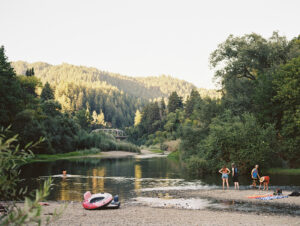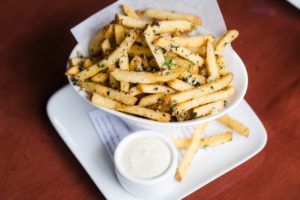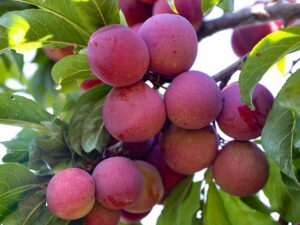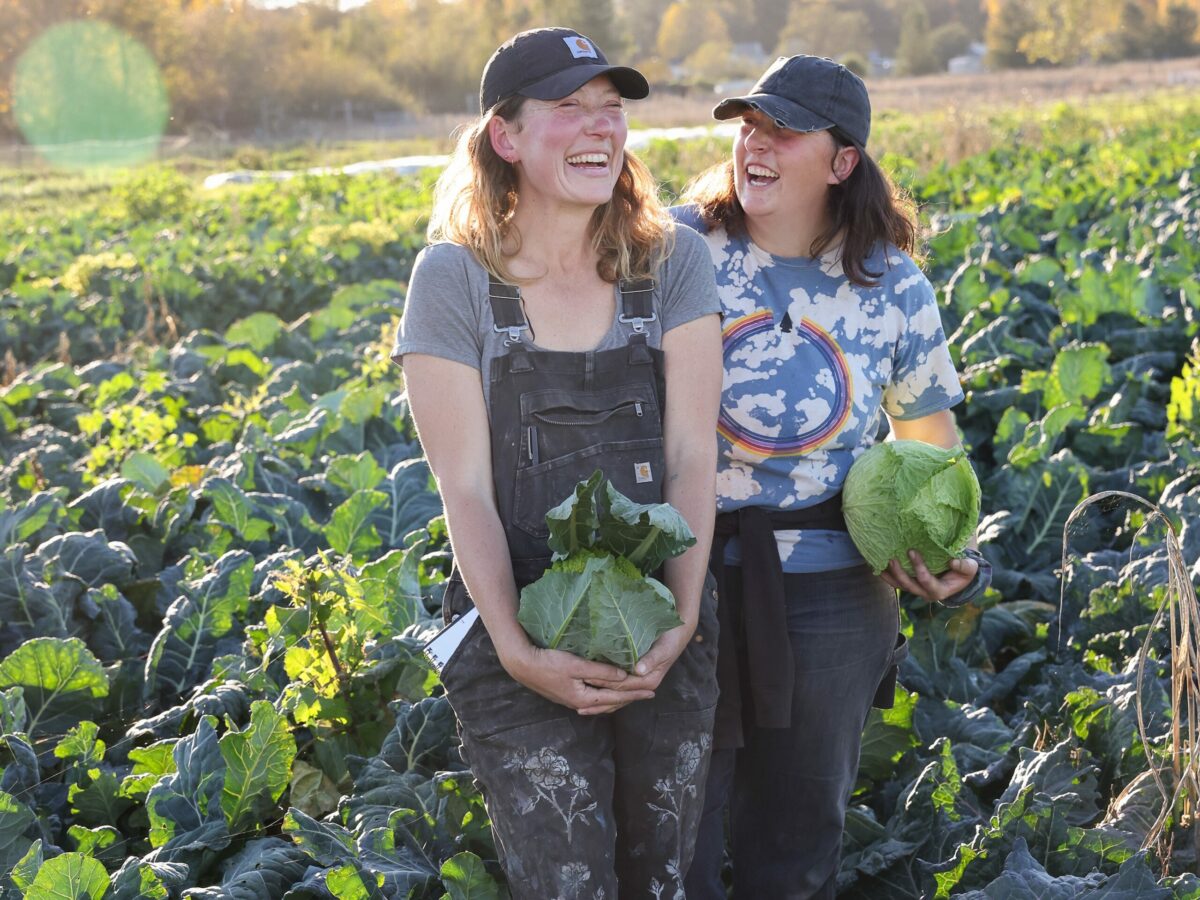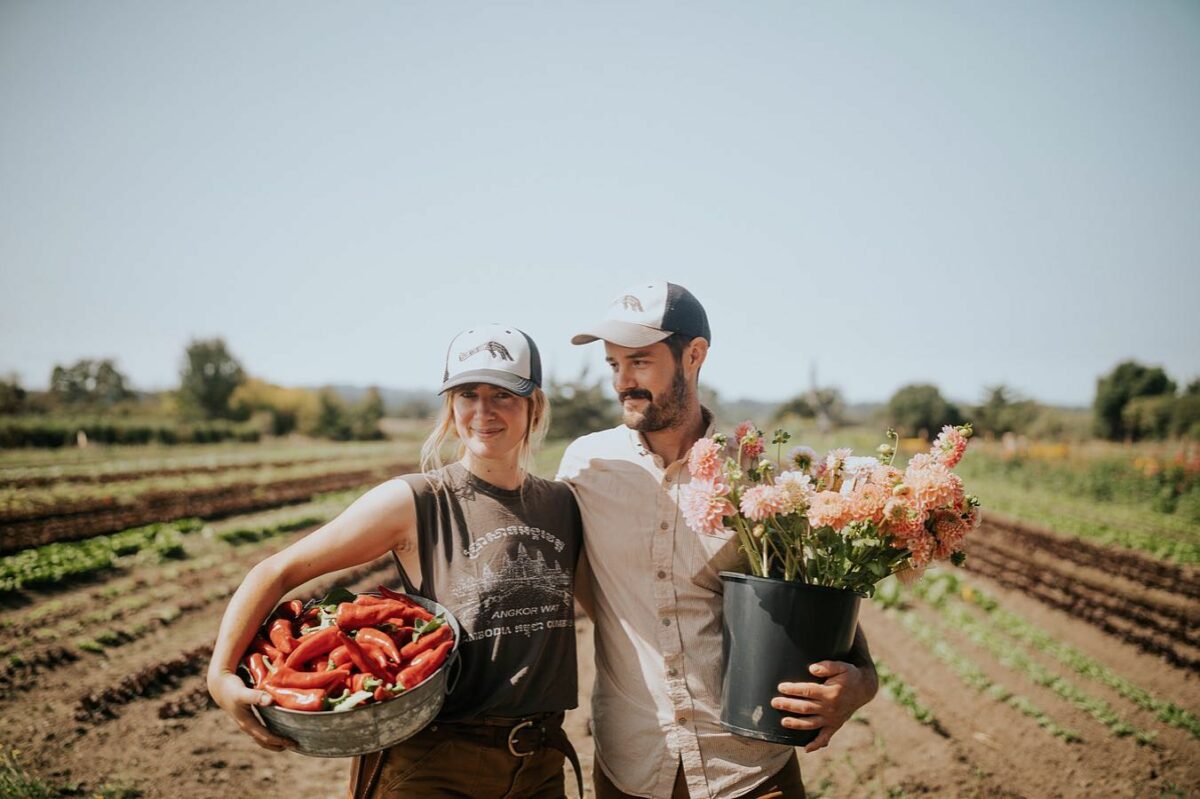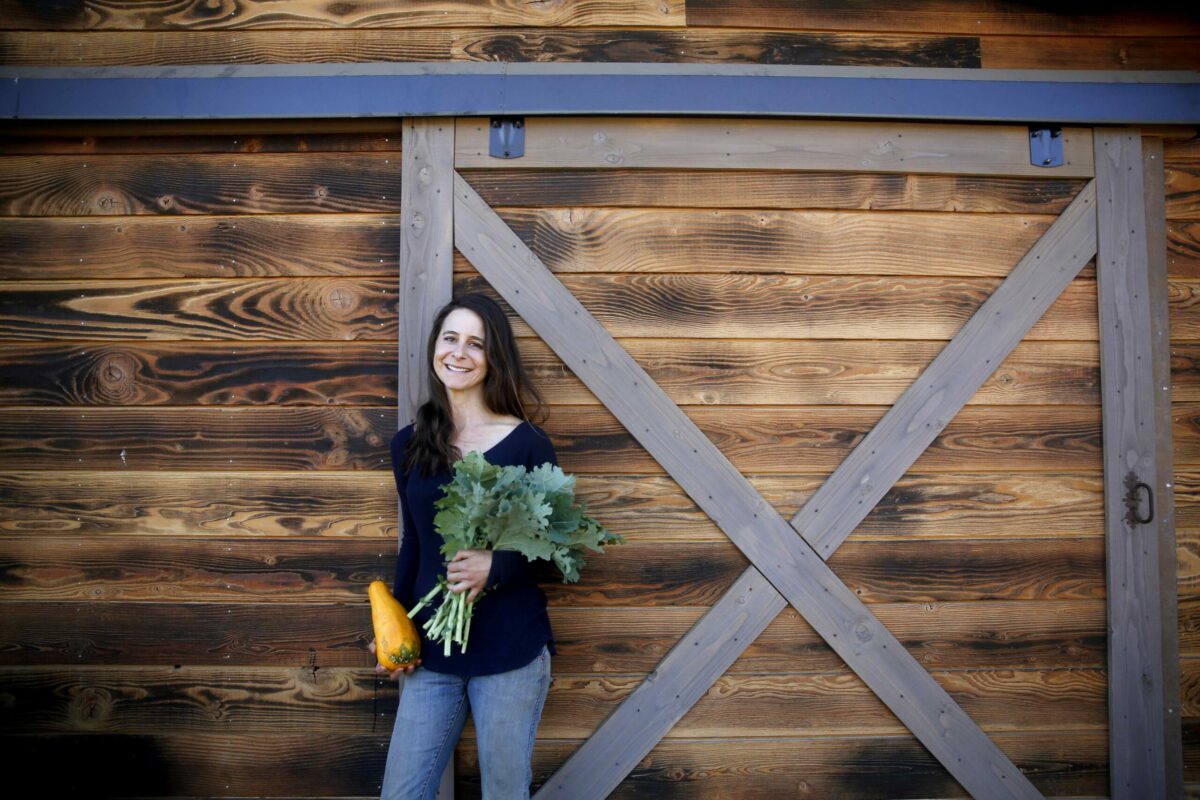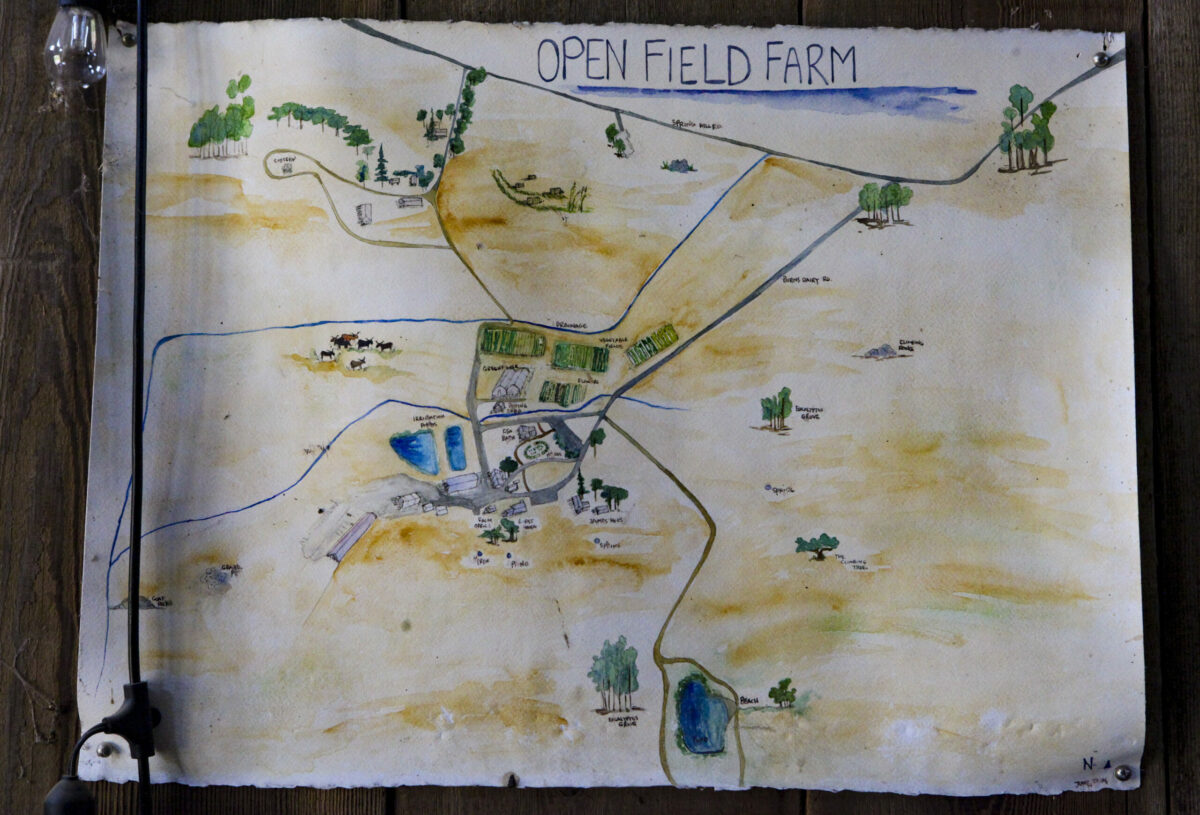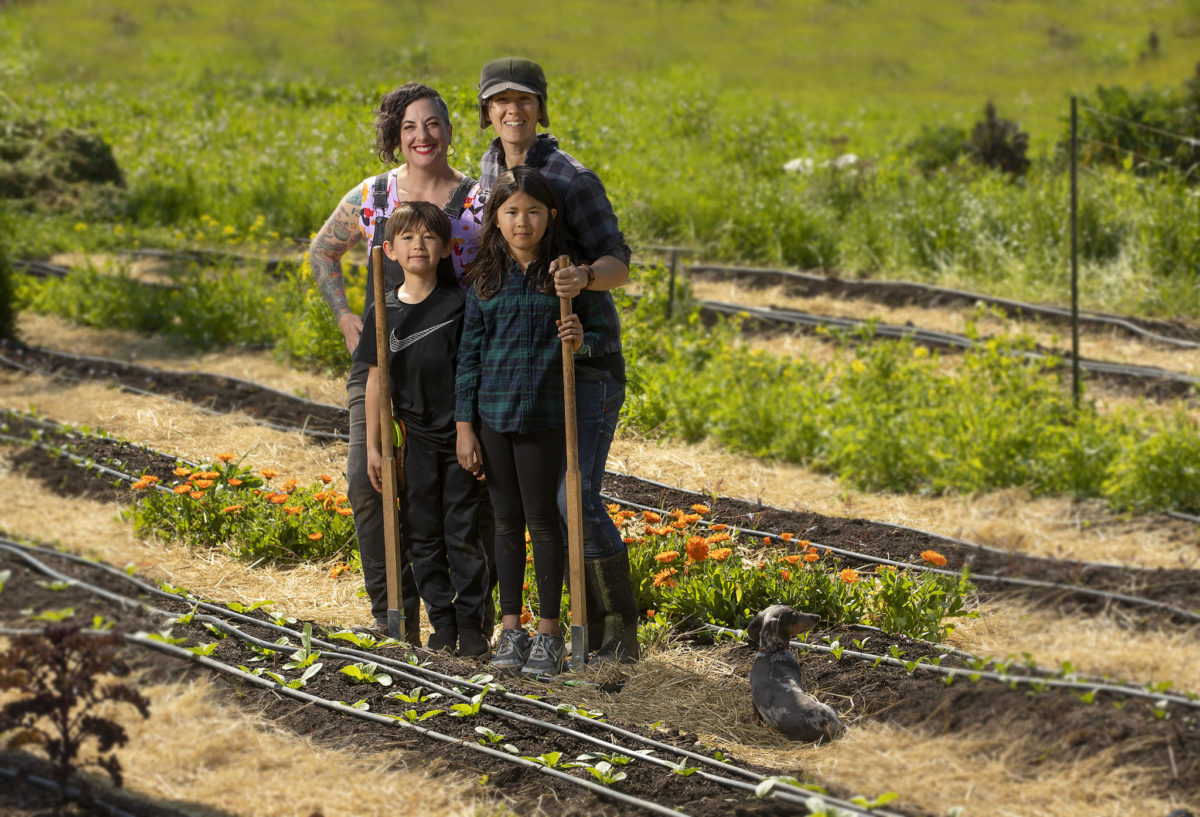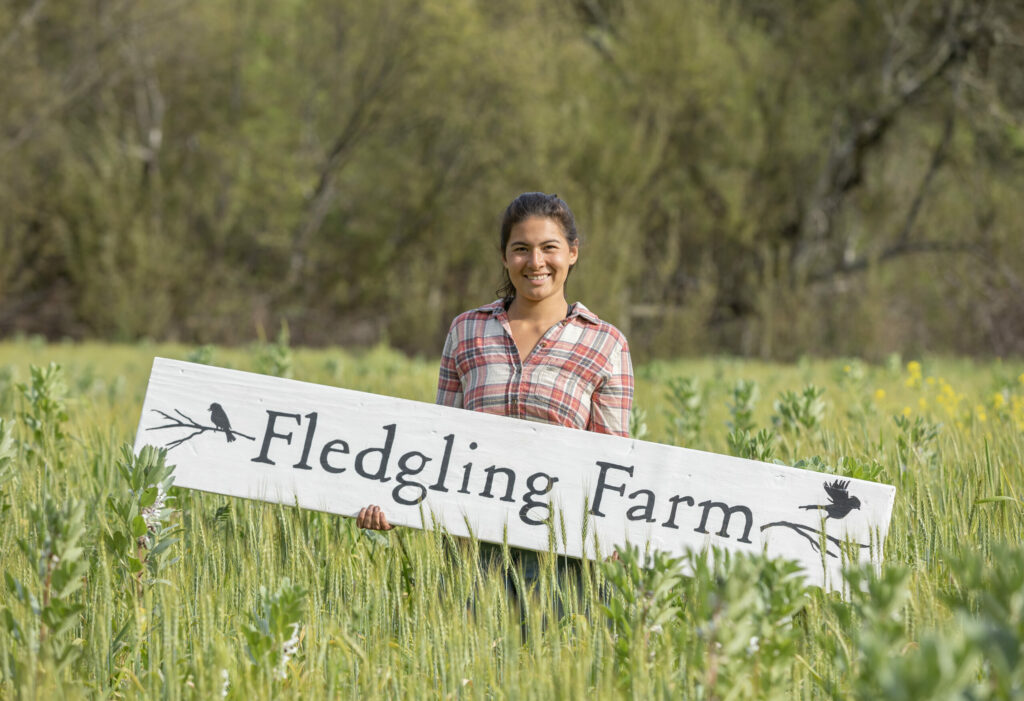At a plot of land just east of Sebastopol, Sarah Dozor dodges fat raindrops, flashing silver as a brilliant sun breaks through roiling gray clouds.
Nearby, two women wrestle plastic for a tall hoop house to fill with plantings of arugula and other delicate greens. With steel ribs and a plastic skin that allows the inside to warm like a greenhouse, the hoop house can fit farm equipment inside and move around to different areas of the farm as needed. The downside: powerful winter storms can shred the plastic skins, and sometimes even send the entire contraption sailing through the air.
But such is the life of a farmer— and perhaps even more so for farmers like the Dozor sisters, Sarah and Anna, who specialize in winter vegetables at their 9-acre Winter Sister Farm. For most Sonoma County growers, December through March are sleepy seasons, dominated by citrus and squash. But the sisters purchased their land, located on the edge of the Laguna de Santa Rosa, specifically to take advantage of the area’s relatively mild winter climate.
The sisters grow plenty of standards—kale, spinach, potatoes, carrots—but also buttery Nadmorska rutabagas, earthy kohlrabi, salsify, nutty-toned Romanesco, Crunchy King radishes, and Mediterranean scorzonera, with its intriguing flavor reminiscent of asparagus or, some say, oysters.
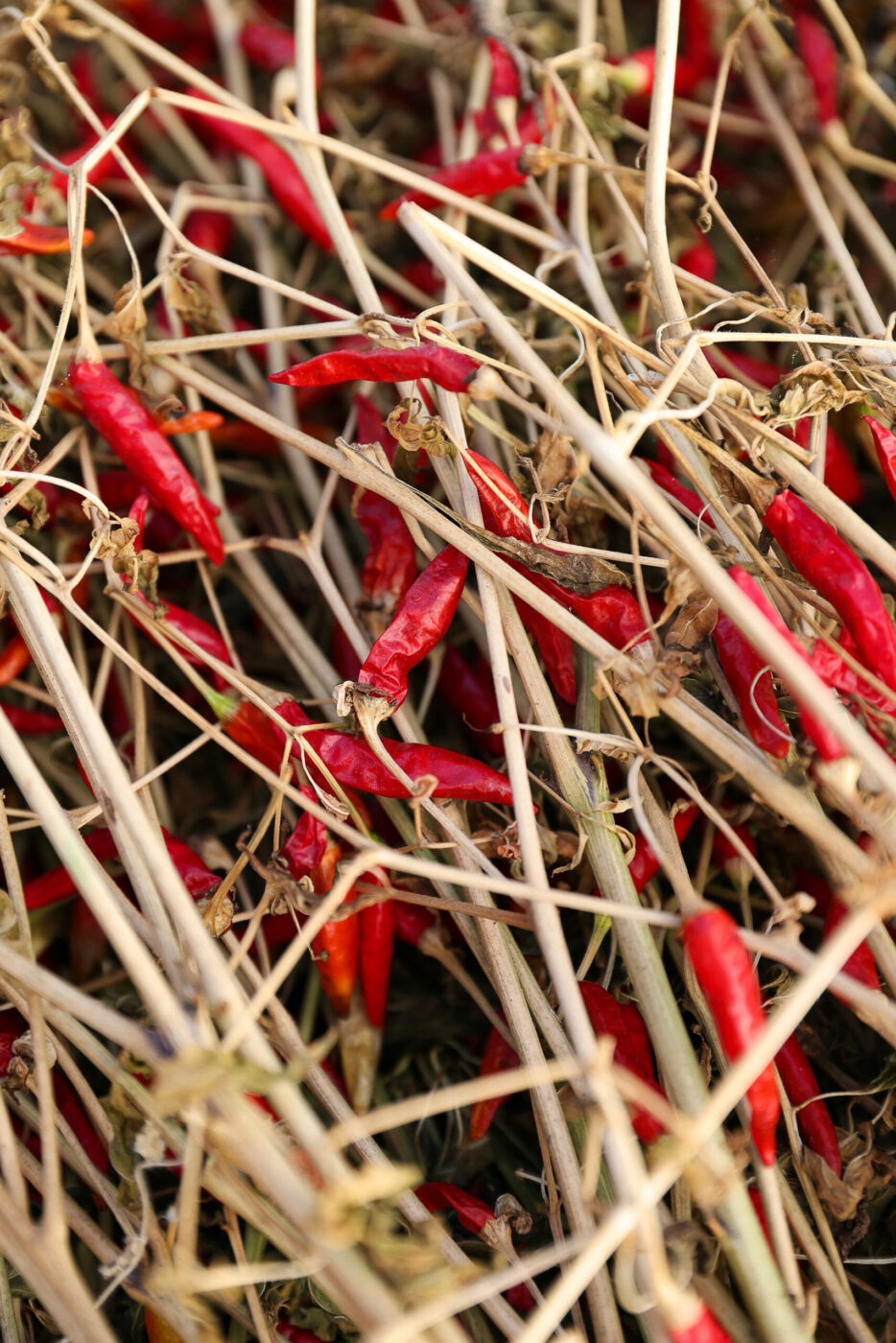
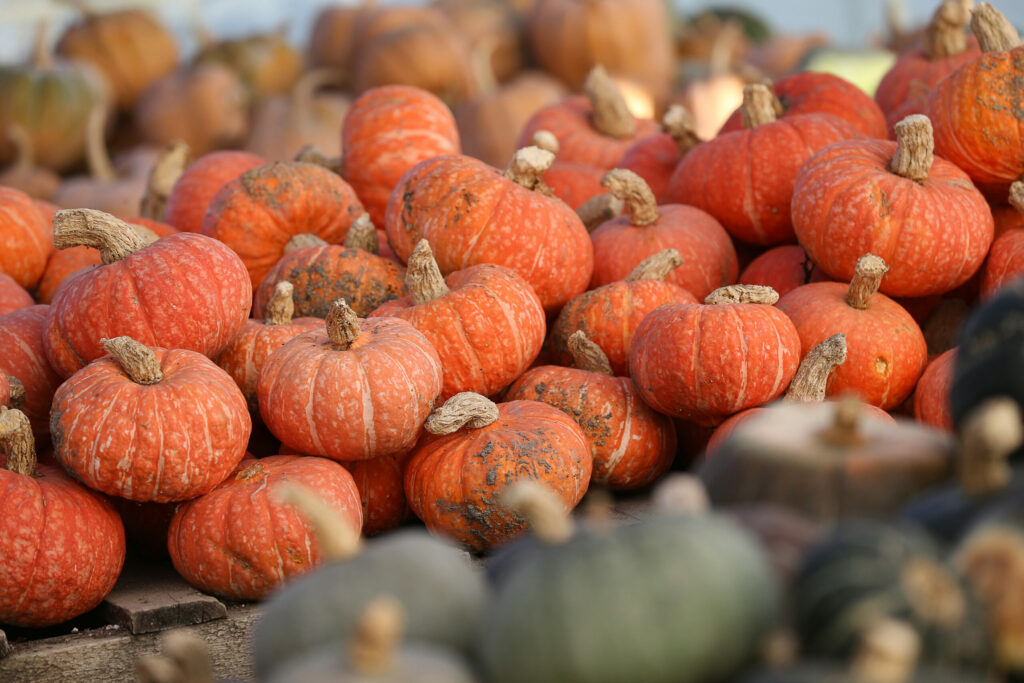
“This season usually means a lot of root vegetables and braising greens, and you think you can’t avoid a certain redundancy,” says Sarah. “But I’m just amazed at how our locals are. When we were doing our crop plan, I said ‘Nobody wants rutabagas.’ But Anna said that they would. And it’s true—the people who sign up for our kind of CSA are wonderfully weird and snatch up all the turnips.”
Winter Sister’s has an unusual CSA subscription from November through May, complementing other local farms’ summer offerings. Most local CSAs sell prepackaged, monthly boxes, meaning that people who hate kale can end up getting a lot of it, and even the kale-lovers can end up with so much they can’t use it all. Instead, Winter Sister Farm offers free-choice selections on a flexible basis, meaning members can visit the farm twice a week and choose exactly what, and how much, they want.
So the sisters stock their 100-year-old tractor barn with tables laden with fresh Cleo dandelion greens, colorful Swiss chard, peppery mustard greens, red butterhead lettuce, and beets that boast tall, glossy leaves to use like greens. And because the sisters work year-round, they have other storage crops that can be turned into winter sustenance, like onions, squash, dried peppers, cornmeal, and gold tepary beans.
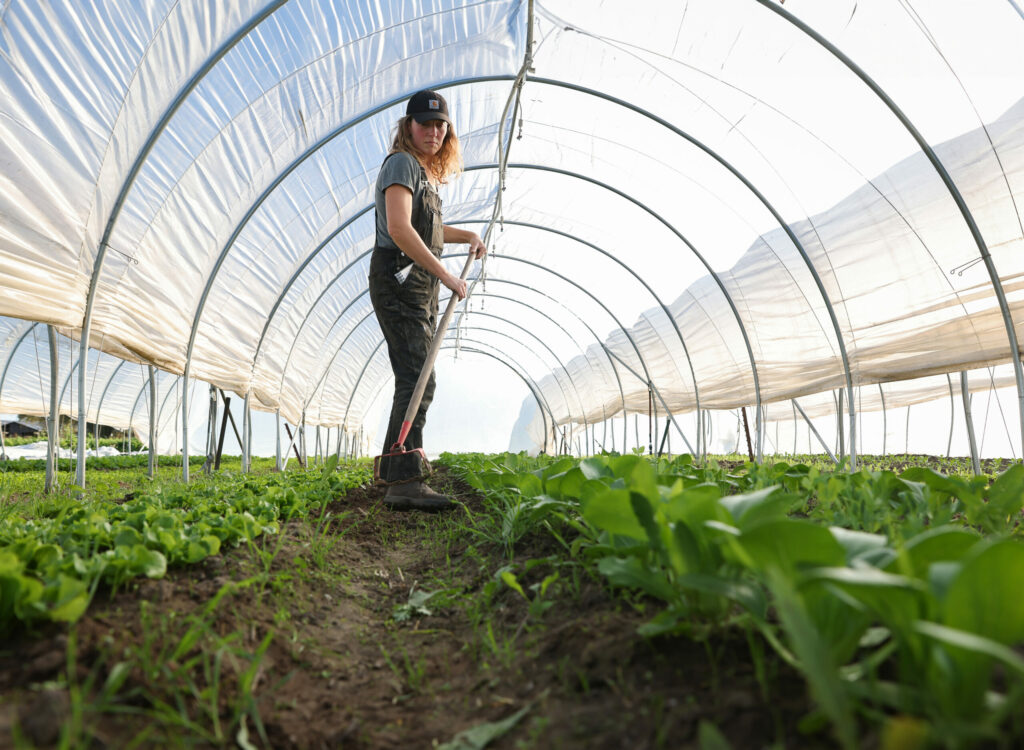
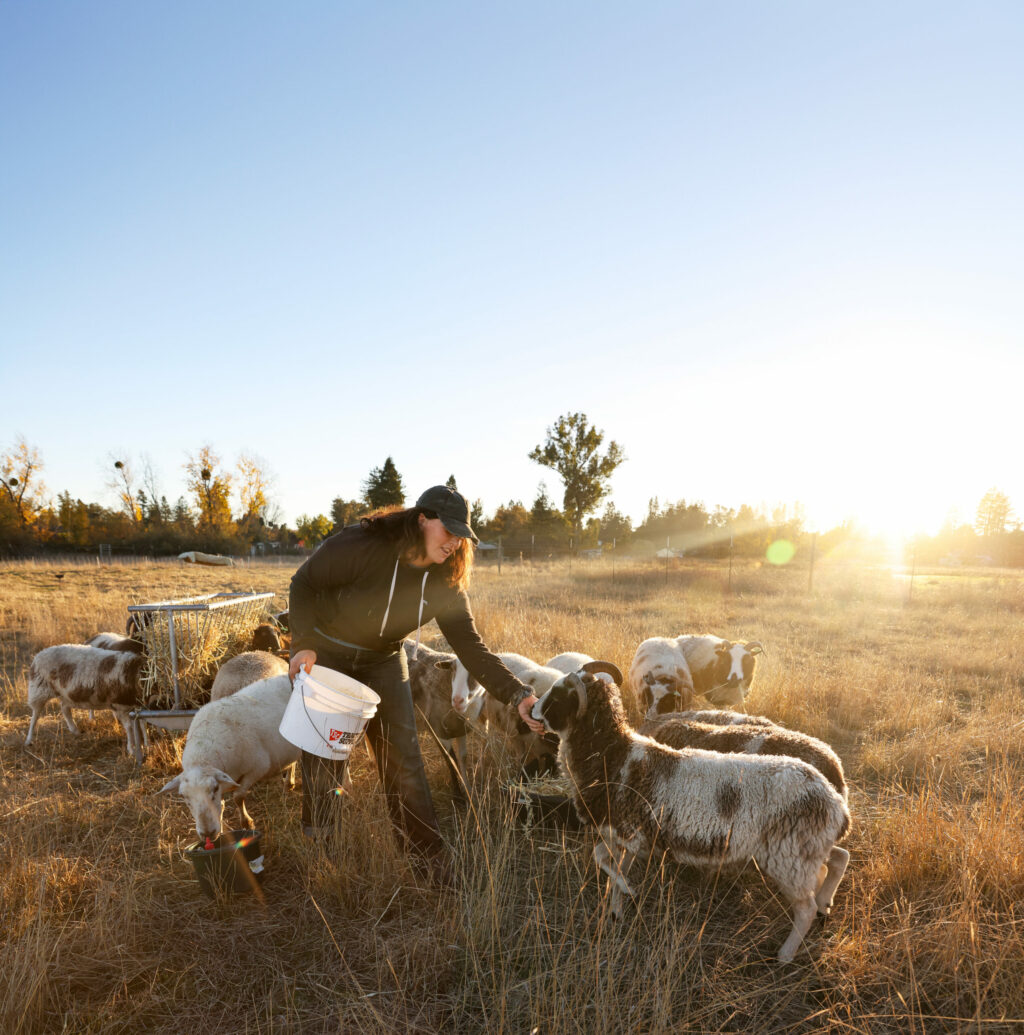
The farmwork, which Sarah admits can sometimes seem dreary when the sun sets at 5 p.m., does help fill a gap in the local food system. And it elevates ingredients for winter’s slow-braising soups, stews, and casseroles. “We have broccoli that we planted in summer, and really talks to us now,” she said. “It’s a magic plant that just hangs out, and then gives us food when almost nothing else is ready.”
After just three years working their land, the sisters have developed a rhythm, of seed-to-dirt, harvest to storage, or near daily fresh-pick. “We work closely to mirror our seasons,” says Sarah. “It’s been a lot of figuring out the scale and size of what we can do, and a lot of it is the timing. Because you don’t have as much wiggle room as summer, where you can grow another crop if one doesn’t work.”
There are also the challenges of winter weather, like last year’s massive rain and wind storms. That’s when the Dozor sisters are grateful to the model of the CSA. In 2023, the sisters had their high tunnels blow down twice, and a lot of their salad greens were lost. But their customers stood by them. Some brought the women wine and home-baked bread; others lent equipment or pitched in to erect new hoop houses.
“I didn’t hear a word of grumpiness around it, which would have been their right, because they didn’t have arugula for a month,” says Sarah. “We lost a lot of food. It was dramatic, and we lost hours putting hoops back up—but we didn’t actually lose income.”
“And there’s no way our business would be here this year if we hadn’t had that amazing, sweet, community support.”
The Dozor sisters’ Winter Sister Farm CSA is limited to about 150 members, who visit the farm once a week to select veggies and pick flowers and herbs. Shares start at $830 for a 24-week season that runs November to May. For nonmembers, there is also a farmstand, open to the public on Tuesdays from 2-6 p.m. and Saturdays from 10 a.m. to 2 p.m. Winter Sister Farm, 1670 Cooper Road., Sebastopol. wintersisterfarm.com
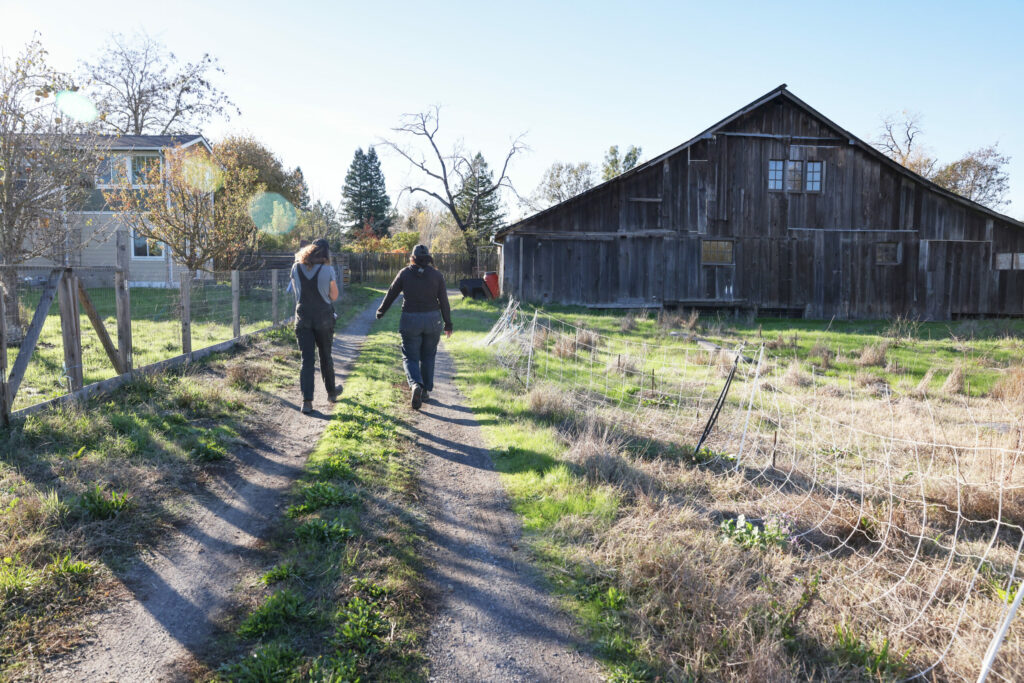
More Sonoma County Farms for Winter Veggies
Longer Table Farm: A 10-acre Santa Rosa farm growing organic vegetables and flowers year-round for farmers markets and local grocery stores. Try the Rosalba radicchio, which looks a bit like prosciutto and tastes like bitter chicory. 707-758-2021, longertablefarm.com
Red H Farm: This boutique 1.2-acre Sebastopol farm has a monthly Winter Nourishment CSA, for December through February box pickups of storage crops and an array of produce and herbs. redhfarm.com
Open Field Farm: The biodynamic Petaluma farm offers a year-round CSA with a model like Winter Sister Farm, in which members are free to choose their own veggies. 707-775-4644, openfieldfarm.com
Radical Family Farms: Look for the farm’s specialty Asian heritage vegetables and herbs, including fragrant Holy basil and gorgeous cabbages and greens, year-round at the Sunday morning Sebastopol Farmers Market. 707-210-2773, radicalfamilyfarms.com
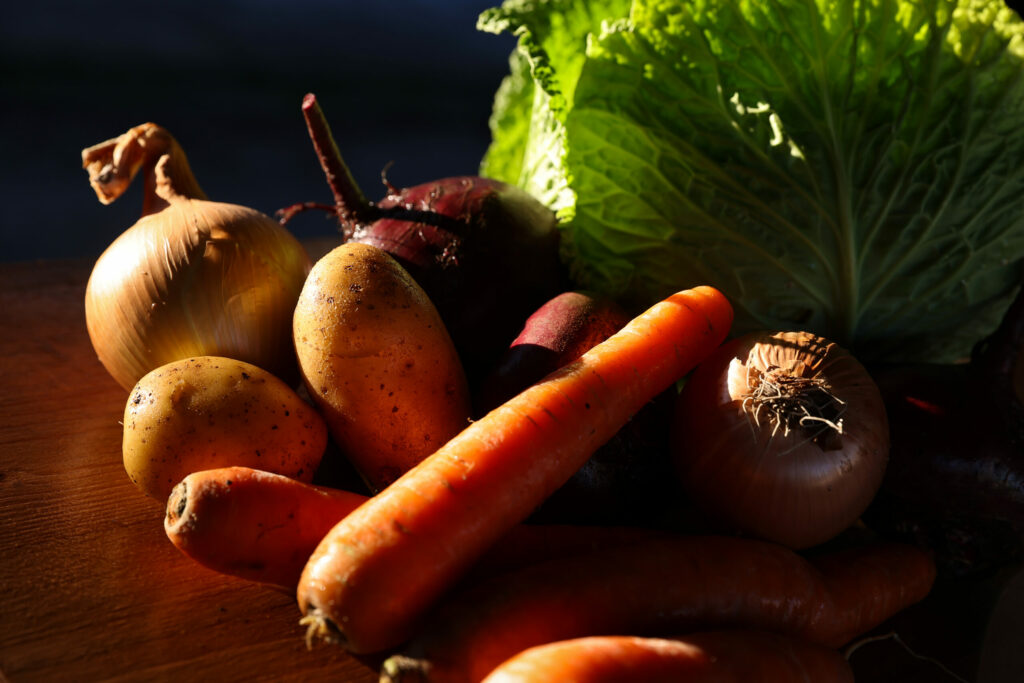
Red Borscht
Winter Sister Farm, Sebastopol
Farmer Sarah Dozor stitched together this warming vegetarian recipe from a few different cookbook and online sources. “Borscht is one of my favorite winter recipes,” she says. “It is warming, hearty, and very simple—just what I needed for a frosty evening meal.”
• 3 tsp. extra virgin olive oil or other vegetable oil
• 1 large onion, chopped (about 1 ½ cups)
• 8 cups vegetable broth
• 4 large beets, peeled and chopped
• 4 carrots, peeled and chopped
• 1 potato or rutabaga, peeled and cut into 1/2-inch cubes
• 2 cups thinly sliced cabbage
• 3 tbsp. red wine vinegar
• Salt and freshly ground black pepper, to taste
• 1 cup sour cream or yogurt, for topping (Sarah uses a homemade yogurt made with raw milk from Sebastopol’s Bramble Tail Homestead)
• Chopped herbs such as parsley, dill, or scallions, for garnish
Heat the oil in a large pot. Add the chopped onion and cook until softened, about five minutes.
Add the beets, carrots, and potato or rutabaga. Mix with the cooked onion and allow to partially soften in the pot, about five minutes.
Add the broth. Cover the pot and bring the mixture to a boil, then lower the heat and simmer until the vegetables are soft, about 30 minutes. Add about half the cabbage and cook through.
After all the vegetables have softened, remove the pot from heat. Using an immersion blender, blend until the soup is mostly smooth, leaving some chunks for texture. (If you don’t have an immersion blender, you can blend the soup in batches in a regular blender.)
Return the pot to the stove. Add the red wine vinegar and the remainder of the shredded cabbage, and heat through. Season with salt and pepper to taste.
Serve with a dollop of yogurt or sour cream and chopped herbs on top.


